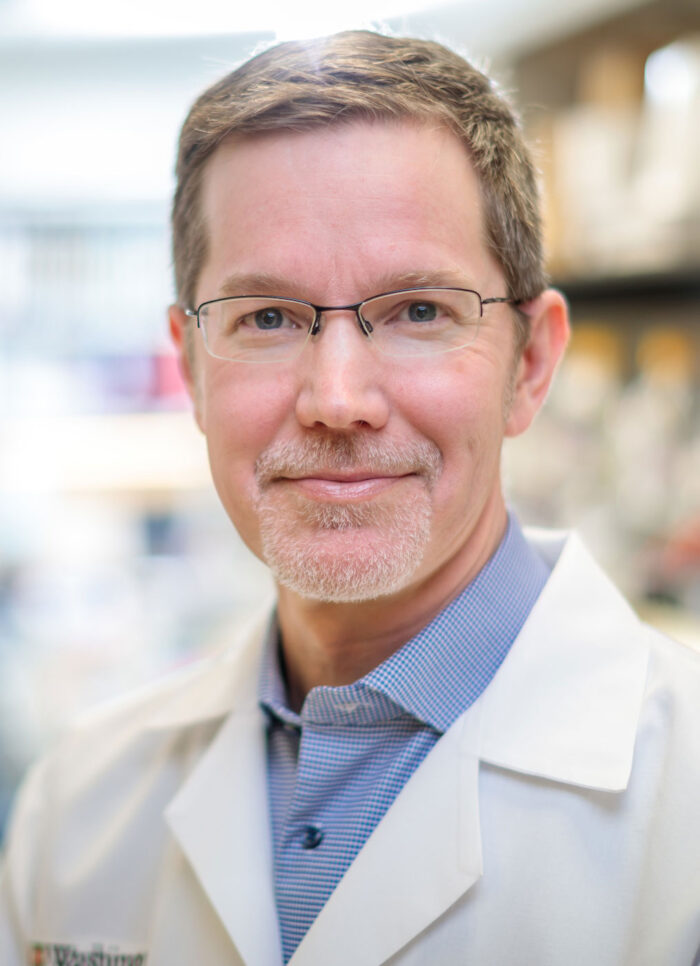Miller receives Rainwater Prize for Brain Research
Honored for work developing new kind of therapy for neurodegenerative diseases

Miller
Timothy Miller, MD, PhD, the David Clayson Professor of Neurology at Washington University School of Medicine in St. Louis, has been named a winner of the Rainwater Annual Prize for Outstanding Innovation in Neurodegenerative Disease Research. The prize recognizes scientific progress that could lead to innovative, effective treatments for neurodegenerative diseases associated with the accumulation of tau protein in the brain.
Miller shares the prize with collaborators C. Frank Bennett, PhD, of Ionis Pharmaceuticals, and Don W. Cleveland, PhD, of the University of California, San Diego. The team was recognized for developing a new approach to treating neurodegenerative diseases based on using a modified form of DNA known as antisense oligonucleotides. Their work has led to a drug candidate for a genetic form of amyotrophic lateral sclerosis (ALS) that is under review at the Food and Drug Administration (FDA), an experimental therapy for Huntington’s disease that is in clinical trials, and a compound that is being studied for its potential to treat neurological diseases involving the tau protein, such as Alzheimer’s disease. In addition, the group’s foundational research on antisense drug technology paved the way for the development of nusinersen, an antisense drug approved for the treatment of spinal muscular atrophy.
Antisense technology is a way to reduce the levels of a problematic protein. Many diseases are caused by excessively high levels or defective forms of specific proteins. Antisense oligonucleotides can be specially designed to target an unwanted protein and prevent the body from making more of it. Miller, a co-director of WashU Medicine’s ALS Center and vice chair for research in the Department of Neurology, has focused on applying the technology to a form of ALS caused by a mutated form of the SOD1 gene. He led a phase 3 clinical trial that showed that targeting this gene with an experimental antisense drug improves molecular signs of disease, and may help stabilize muscle strength and control. A decision by the FDA on approving the drug, known as tofersen, as a therapy for SOD1 ALS is expected later this year.






